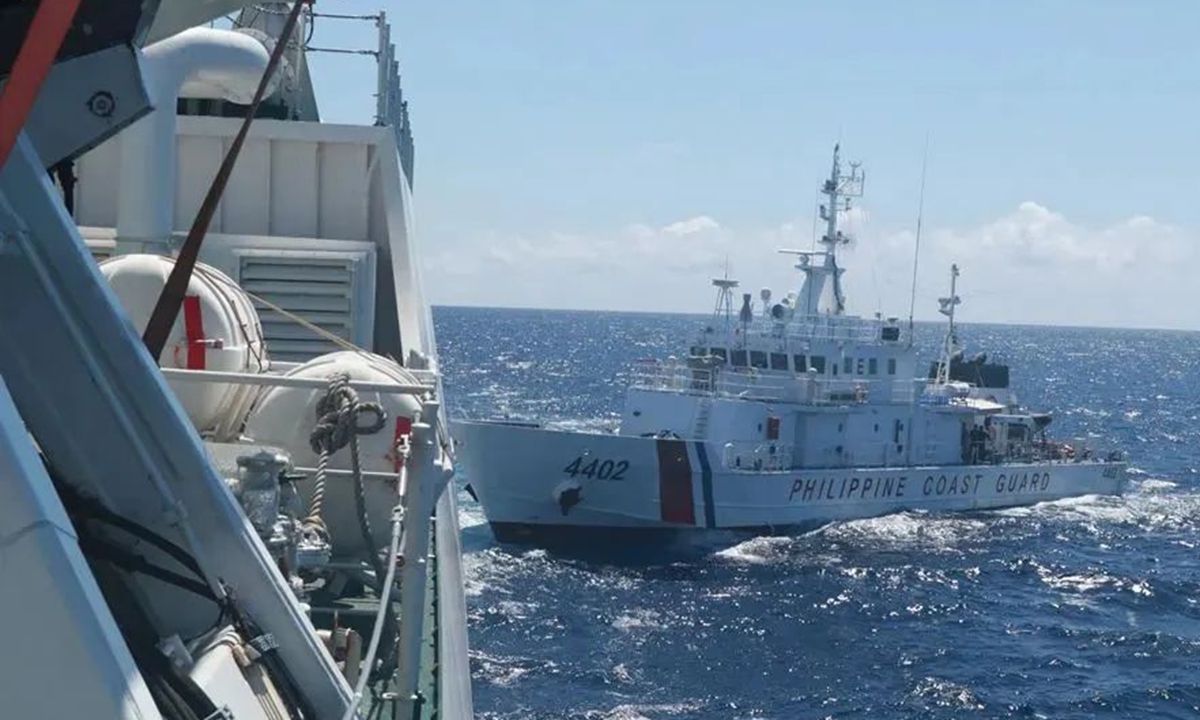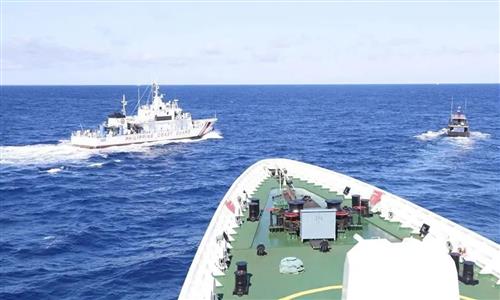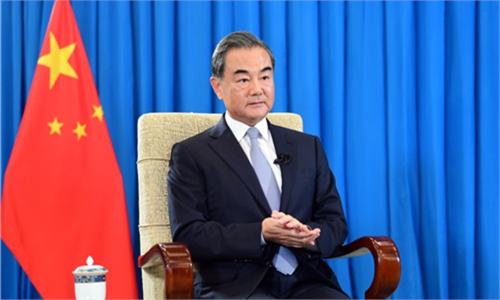Manila risks becoming 'bridgehead' of US' anti-China push with new national security policy

China Coast Guard drives away Philippine vessels intruding into waters of China's Nansha Islands
Highlighting potential "military conflict" across the Taiwan Straits and strategic challenges in the South China Sea due to "divergences of claims," the Philippines published its new six-year national security policy seeking to bolster its ability to address "external threats" and strengthen ties with alliances. Chinese analysts warned Wednesday that such a document could indicate that Manila has increasingly become a bridgehead in Asia for the US' anti-China push, at the cost of its own security and interests.
The 48-page National Security Policy (NSP) 2023 to 2028 document was rolled out on Tuesday, after approval by President Ferdinand Marcos Jr, stating that "any military conflict in the Taiwan Strait would inevitably affect the Philippines given the geographic proximity of Taiwan to the Philippine archipelago and the presence of over 150,000 Filipinos in Taiwan."
Including the so-called cross-Straits concern in the NSP document is an indication that the Philippines has in fact taken sides with the US-led West that is trampling on China's core interests, some experts said. "Using the Taiwan question to legitimize strengthening military ties with allies and interfering in China's internal affairs would only further destabilize the cross-Straits situation," Chinese military expert Song Zhongping told the Global Times on Wednesday.
The Philippine government is eyeing a visiting forces agreement (VFA) with an Asian ally "near China," Foreign Affairs Secretary Enrique Manalo said on Tuesday at the House Committee on Appropriations hearing, local media reported.
"We are considering other possible similar arrangements with other friendly partners for countries who wish to do so. And in fact, we are in discussion now with one country, a major partner near China," Manalo said.
The Philippines has a visiting forces agreement with the US and a status of forces agreement with Australia. These provide for joint exercises and training between the Philippines and the two countries.
Observers warned that inviting the US-led West and even NATO to the region would turn the Philippines into the frontline for the US' anti-China push.
Geographically close to China, bases of the Philippines that Manila allows the US-led Western forces to use to attack China if a cross-Straits conflict breaks out, would inevitably become battlefield, Song warned, questioning "is this Manila's best strategic choice to secure itself? Or it would work the opposite."
The Philippines' NSP document also points to the strategic rivalry between the US and China as a factor adding to the tensions in the region. Special attention is focused on food and energy security priorities, noting that the South China Sea "remains a primary national interest."
"The divergences of claims, as well as the claimants' methods of asserting their positions, continue to pose strategic challenges, endangering not only the country's territorial integrity, but also the Filipino people's exercise of legitimate rights and their safety and well-being," the document read, which came amid a rift with China at Ren'ai Jiao in the South China Sea.
Analysts said they are worried the document signals that the Philippines, encouraged and pressured by the US, would create new rounds of frictions in the South China Sea in other sites such as Zhongye Dao, increasing tensions in the South China Sea and destabilizing the region.
Dai Fan, director of the Center for Philippine Studies in Jinan University in South China's Guangdong Province, told the Global Times on Wednesday that the NSP document would serve as a guidance for the Marcos Jr government's major diplomacy adjustments in the next five to six years. We can tell from the document that Manila is preparing to strengthen its security and diplomatic ties with the US by stressing the urgency of addressing threats related to cross-Straits and South China Sea issues, Dai said.


